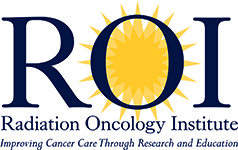Last chance to submit research for H&N symposium, eContouring webinar, Advocacy update on ROCR
October 18, 2023
| Tonight is the deadline for abstract submissions for 2024 Multidisciplinary Head and Neck Cancers Symposium |
| The abstract submission site closes tonight at 11:59 p.m. Pacific time. Don't miss your chance to submit your research for the premier Multidisciplinary Head and Neck Cancers Symposium! The meeting takes place February 29 - March 2, 2024, in Phoenix at the JW Marriott Desert Ridge and is co-sponsored by the American Head and Neck Society, the American Society of Clinical Oncology, ASTRO, and the Society for Immunotherapy of Cancer. Submit now! And if your research results aren’t quite ready, we will accept late-breaking abstracts from January 2 through January 11, 2024. |
| Reminder: 2023 eContouring for Prostate Cancer webinar tomorrow |
| Registration is open for the 2023 eContouring for Prostate - Focal Boost Radiotherapy - Webinar. This webinar will take place tomorrow, October 19, at 2:00 p.m. Eastern time and will be led by Alison Tree, MD, MBBS, BSc. This ASTRO Academy webinar offers access to hands-on contouring practice on real cases in addition to a live webinar with time for Q&A. ASTRO members receive a discount and Members-in-Training can register for free. Free registration for residents is supported by the Radiation Oncology Institute’s Juan A. del Regato Fund. |
| Make your voice heard! Ask Congress to mitigate excessive RO payment cuts |
| The Providing Relief and Stability for Medicare Patients Act of 2023 (H.R. 3674), if passed, would create relief for radiation oncology and other specialties that were negatively affected by the recent MPFS update to clinical labor pricing. This bill could provide a crucial bridge to long-term payment stability under the Radiation Oncology Case Rate (ROCR) program. The House Energy and Commerce Committee Subcommittee on Health is holding a hearing tomorrow, October 19, to discuss this bill among others, including prior authorization reform. In preparation, ASTRO joined 23 organizations in sending a letter to Committee leadership voicing support for the bill and urging action to pass it. Visit astro.org/advocate to send your own message to your representative asking them to co-sponsor the bill. By showing strong constituent support, you help advance this critical legislation. |
| ASTRO to Congress: Protect access, reduce health care costs |
| ASTRO urged Congress to enact the Radiation Oncology Case Rate (ROCR) program in comment letters in response to Requests for Information (RFI) from the House Ways and Means Committee and the Budget Committee Health Care Task Force. The Ways and Means RFI sought insights on opportunities to improve access for rural and underserved populations, whereas the Health Care Task Force RFI sought feedback on ways to reduce health care spending. ASTRO highlighted the high value that radiation oncology brings to cancer care and shared information on how ROCR would stabilize payments and improve access to care. For more information, see What’s Happening in Washington. |
| Look to ROhub for latest ROCR news |
| ASTRO Chair Jeff Michalski, MD, MBA, FASTRO, updated members on ASTRO’s ROCR program proposal via the ROhub on October 14, urging community support for this legislative initiative. Dr. Michalski described changes to ROCR based on member and stakeholder feedback, noted that ROCR advocacy is off to a strong start on Capitol Hill, and requested that organizations sign on to a draft letter to Congress in support of ROCR. ASTRO members should keep an eye on ROhub for the latest news, information and discussions about ROCR. Note: If you are not receiving the daily digest from the ROhub, send these steps on adding ROhub as a safe sender to your IT department. |
| ARPA-H awards $115M for cancer research |
| The Advanced Research Projects Agency for Health (ARPA-H) announced three major research grants totaling $115 million for cancer research detection and treatment projects. These research projects support the Administration’s Cancer Moonshot goals of decreasing cancer deaths and improving the quality of life for patients. ASTRO supports increased funding for the National Institutes of Health, National Cancer Institute and ARPA-H for programs focused on cancer treatment and prevention. To read about the programs funded, visit What’s Happening in Washington. |
| ROs encouraged to participate in Physician Practice Information survey |
| The Physician Practice Information survey is an important tool used to better understand the costs faced by today’s physician practices, including radiation oncology clinics. The input from physician practices and individual physicians that are randomly selected to participate in this study serves as the basis for valuing practice expense in the Medicare Physician Fee Schedule. Mathematica has contracted with the AMA to issue invitations to the survey, which is supported by over 170 health care organizations, including ASTRO. Read What’s Happening in Washington for more information. |
| Last chance to volunteer for an ROI committee in 2024 | |
 |
The Radiation Oncology Institute (ROI) is looking for new voices to join the Development or Research Committee. You can volunteer to serve in 2024 by this Friday, October 20. Members of the Development Committee help create, approve and execute the revenue-generation strategy to secure the resources necessary to advance the mission. Members of the Research Committee develop the award opportunities, review applications and provide direction for the research program. ROI is ASTRO’s foundation, so volunteering qualifies as ASTRO service. Be a part of the only charity accelerating progress in radiation oncology, and apply to be an ROI volunteer today! |
| New Ask a Radiation Oncologist Q&A on facts vs. myths |
| The latest Ask a Radiation Oncologist Q&A session is hosted by radiation oncologists Christian Okoye, MD, Nina Niu Sanford, MD, and Onyinye D. Balogun, MD, MSc. The panel answers common patient questions about radiation therapy focusing on facts versus myths. This session is a valuable resource to share with patients and colleagues to help them learn the facts and debunk common myths. |


